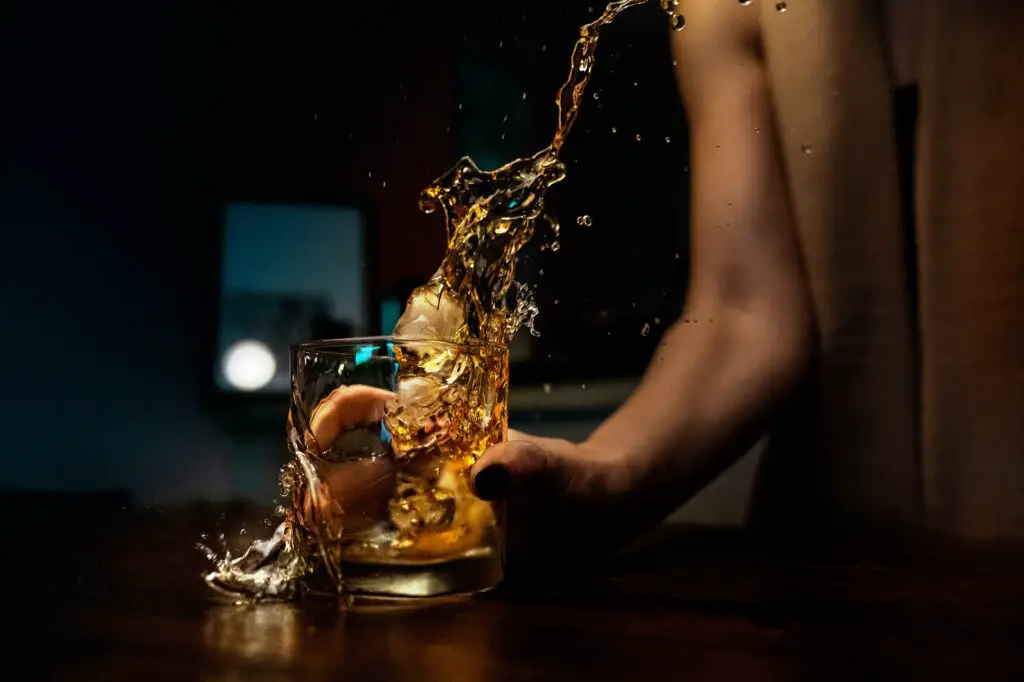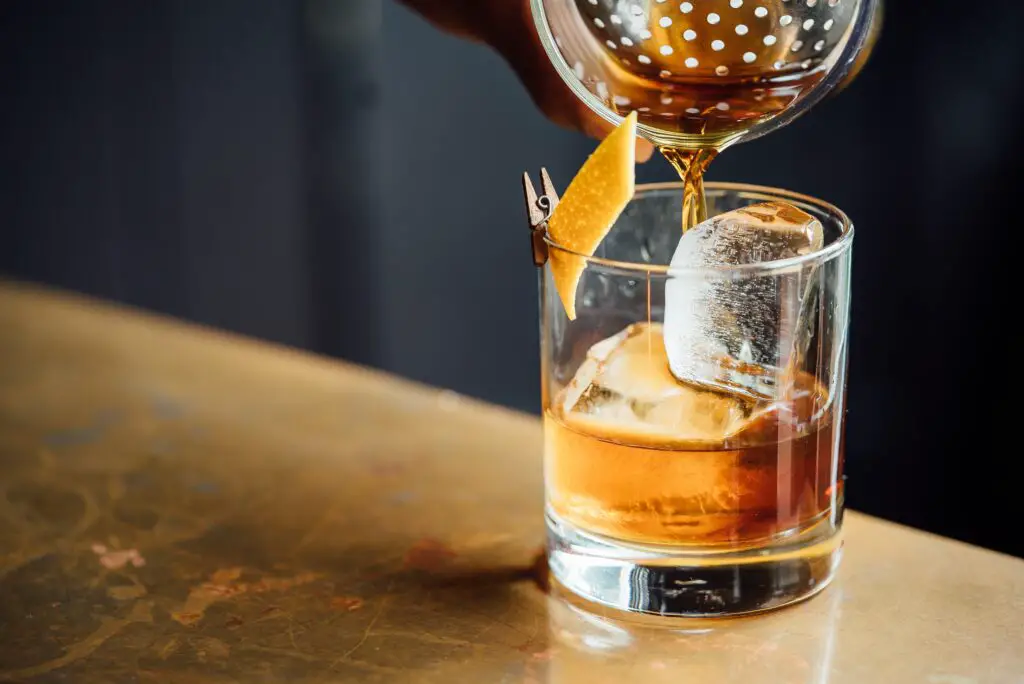As a BetterHelp affiliate, we receive compensation from BetterHelp if you purchase products or services through the links provided
Do you have trouble sleeping? Are you looking for ways to sleep without alcohol? If so, you’re not alone. Millions of people worldwide struggle with insomnia, and many of them turn to alcohol to help them fall asleep. This is a dangerous habit, and it can lead to many health problems down the road. In this article, we will discuss some of the dangers of drinking alcohol before bed and provide some tips on how to sleep without alcohol.
Alcohol And Sleep Apnea
One of the dangers of drinking alcohol before bed is that it can exacerbate sleep apnea. Sleep apnea is when a person’s breathing is interrupted during sleep. This can happen several times throughout the night, leading to restless sleep. If you already have sleep disorders, drinking alcohol before bed will worsen.

Dangers Of Alcohol
Many dangers are associated with people who use alcohol as a sleep aid. First, it can interfere with your quality of sleep. You may find that you wake up more during the night or that you don’t feel well-rested when you wake up in the morning. Second, alcohol can disrupt your natural sleep cycle. This means you may not get the important deep REM (Rapid Eye Movement) sleep that your body needs. Third, drinking alcohol before bed can increase your risk of developing cancer. Fourth, it can lead to weight gain. Fifth, it can cause dehydration. Sixth, it can worsen sleep apnea. Finally, it can increase your risk of dying from sudden cardiac death.
Break The Cycle Of Drinking Yourself To Sleep
If you’re one of the millions of people who drink alcohol to help them sleep, you may be surprised to learn that it’s doing more harm than good. Although alcohol may help you fall asleep at first, it will disrupt your sleep later in the night. This can lead to insomnia, which can then lead to drinking more alcohol in an attempt to fall asleep again. It’s a vicious cycle that can be difficult to break out of. But it’s important to try because alcohol is a depressant and can seriously affect your health if you drink too much of it.
Some of the dangers of drinking alcohol before bed include:
- Disrupting your sleep cycle
- Worsening anxiety or depression
- Increasing your risk of developing cancer
- Damaging your liver
If you’re struggling with a mental health disorder, there are a few things you can do to try and break the cycle of drinking yourself to sleep. First, avoid drinking alcohol for at least four hours before bed. This will give your body time to metabolize the alcohol and hopefully allow you to fall asleep without it. If you can’t go that long without a drink, try limiting yourself to one or two drinks instead of three or four. And make sure you’re staying hydrated by drinking plenty of water during the day. Finally, if you’re still struggling to sleep, talk to your doctor and seek professional medical advice such as medication or therapy.

How Does Alcohol Affect Sleep?
Now that we’ve discussed some of the dangers of alcohol addiction before bed let’s take a closer look at how it can affect your sleep. This is because the alcohol prevents you from entering into the deep, restful stage of sleep. You may wake up feeling tired and unrested, which can lead to drinking more alcohol in an attempt to fall asleep again. It’s a vicious cycle that can be difficult to break out of. But it’s important to try because alcohol is a depressant and can seriously affect your health if you drink too much of it.
How To Get Sleep Quality Without Alcohol
If you’re struggling to sleep, there are a few things you can do to try and break the cycle of drinking to falling asleep. First, avoid drinking alcohol for at least four hours before bed. This will give your body time to metabolize the alcohol and hopefully allow you to fall asleep without it.
Find A Routine And Stick To It:
One of the most important things you can do for your sleep is to find a routine and stick to it. This entails going to bed and waking up simultaneously every day. This may be difficult at first, but it will help your body get into a healthy sleep rhythm.
Try Some Natural Sleep Aids:
Many natural sleep aids can help you fall asleep without alcohol. Some of these include chamomile tea, lavender oil, and magnesium supplements. Talk to your doctor about which one may be right for you.
Avoid Caffeine Before Bed:
Caffeine is a stimulant, making it difficult to fall asleep. Avoid drinking caffeine after lunch and try to limit your intake earlier in the day.
Get Some Exercise:
Exercise can help you sleep better at night. Ensure you don’t exercise too close to bedtime, as it may make it harder for you to fall asleep.
Create A Relaxing Bedtime Ritual:
Creating a relaxing bedtime ritual can help signal to your body that it’s time to sleep. This may include taking a bath, reading a book, or stretching. Find what works for you and stick to it every night.
Don’t Watch TV In Bed:
Watching TV in bed can make it harder to fall asleep. If you must watch TV before bed, try doing it in another room, so you’re not tempted to stay up late.
Find A Way To Relax:
If you’re having trouble sleeping, it’s essential to find a way to relax. This may include meditation, deep breathing, or progressive muscle relaxation.
Don’t Substitute One Substance For Another:
If you’re trying to quit drinking alcohol, don’t substitute it with another substance such as cigarettes or drugs. This will only make it harder to break the cycle of addiction.
Talk To Your Doctor:
If you’re still struggling to sleep, talk to your doctor about other options such as medication or therapy. They can help you find the cause of your sleep problems and provide treatment options that are right for you.
Sleep is an essential part of overall health and well-being. If you’re having trouble sleeping, don’t hesitate to talk to your doctor about it. There are many treatment options available that can help you get the restful sleep you need.

Can Alcohol Cause Sleep Apnea?
Sleep apnea is a medical condition that causes breathing pauses or shallow breaths while sleeping. It can be caused by a variety of things, including alcohol. Drinking alcohol relaxes the muscles in your throat, which can cause them to collapse and block your airway. This can lead to snoring and interrupted sleep. If you think you may have sleep apnea, talk to your doctor about it.
Conclusion
Although alcohol may help you fall asleep at first, it will wake you up later in the night. If you’re struggling to sleep, there are a few things you can do to try and break the cycle of drinking yourself to sleep. First, avoid drinking alcohol for at least four hours before bed. This will give your body time to metabolize the alcohol and hopefully allow you to fall asleep without it. Find a routine and stick to it, try some natural sleep aids, avoid caffeine before bed, get some exercise, and create a relaxing bedtime ritual. If you’re still struggling to sleep, talk to your doctor about other options such as medication or therapy. They can help you find the cause of your sleep problems and provide treatment options that are right for you.
Articles You Might Enjoy Reading
RENPHO Eye Massager with Bluetooth Music Review
Do Sleep Masks Work
Best Memory Foam Pillow – Complete Reviews with Comparison
Best Sleeping Mask – Complete Reviews with Comparison
What Is Memory Foam Pillow
- Left Arm Pain and Anxiety: Understanding the Relationship - November 23, 2023
- Anxiety Paralysis: Coping with Overwhelming Stress - November 23, 2023
- Anxious vs. Nervous: Differentiating Emotions and Responses - November 15, 2023
This site contains affiliate links to products. We will receive a commission for purchases made through these links.



